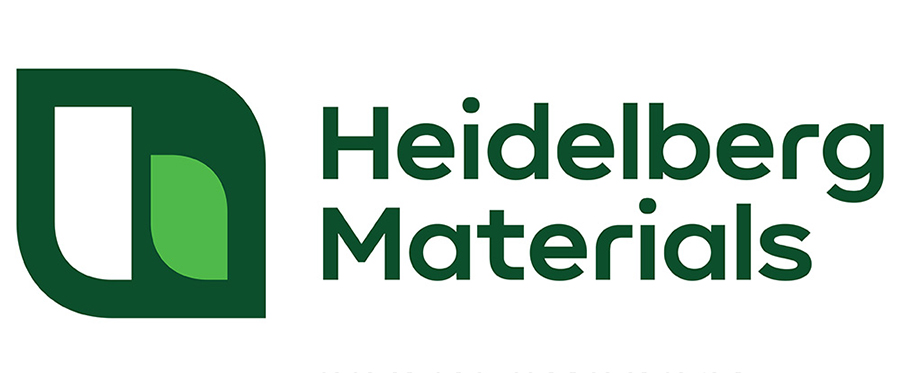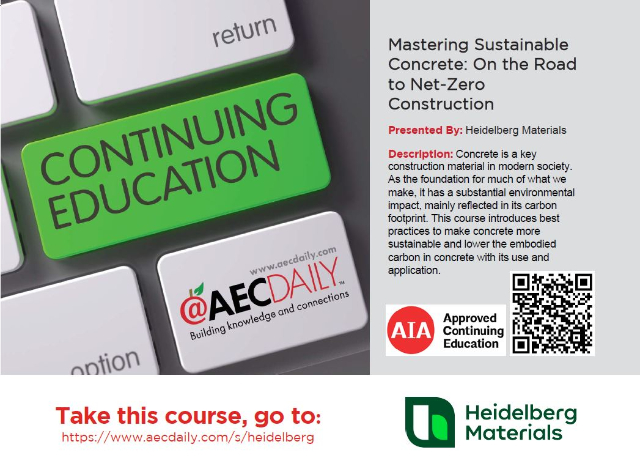Heidelberg Materials North America announced today that it is offering a free AIA accredited on-demand course, “Mastering Sustainable Concrete: on the Road to Net Zero Construction,” to demonstrate to owners, contractors, specifiers and designers how to make choices that promote decarbonization.
The course focuses on the environmental impact of carbon emissions related to concrete, including a basic overview of the material science that goes into concrete mixtures. It covers the industry’s Roadmap to Net Zero Concrete and real-life examples of how to reduce the environmental footprint of concrete, including an in-depth account of how choosing specific materials during project planning, design, and construction result in low carbon mixes. The course also reviews established and emerging carbon sequestration and carbon capture utilization and storage strategies.
Learning objectives in the course include the following:
- Identifying the key contributors to concrete’s carbon footprint and best practices to reduce those impacts.
- Defining the meaning of the term “supplementary cementitious materials” and how it relates to reducing the carbon footprint of concrete.
- Pairing the benefits of various supplementary cementitious materials to the specific materials described and discussing typical applications that will reduce concrete’s carbon footprint.
- Describing the role of carbon capture and storage in the industry’s Roadmap to Carbon Neutrality.
The course is available on AEC Daily’s online continuing education platform and is geared toward learners with intermediate knowledge. Learners can earn 1.0 LU/HSW course credits. There is no cost to take the course.
Heidelberg Materials Supports Carbon Neutrality in Concrete
“Mastering Sustainable Concrete: on the Road to Net Zero Construction” is part of a multifaceted effort on the part of Heidelberg Materials to be a leader in decarbonizing the concrete industry. In addition to its on-demand courses available through AEC Daily, the company hosts various educational events and webinars. Heidelberg Materials educates its employees in sustainability through structured training programs that develop and empower personnel. To reach customers, designers and owners, Heidelberg Materials works with trade groups and associations, conducting workshops and other events.
Achieving carbon neutrality is a global challenge, so global companies like Heidelberg Materials have a powerful role to play when it comes to information-sharing and education.
“To move to a more sustainable future, the concrete and cement industries aim to reach carbon neutrality by 2050, and Heidelberg Materials has the added goal of achieving 50% of our total revenue from sustainable products and solutions by 2030. But we can’t do that alone—we need to partner with people across the entire value chain, sharing our own unique solutions and coming up with new ideas together,” said Larry Rowland, Heidelberg Materials Sustainability Market Manager.
Link to course: http://www.aecdaily.com/s/heidelberg.


